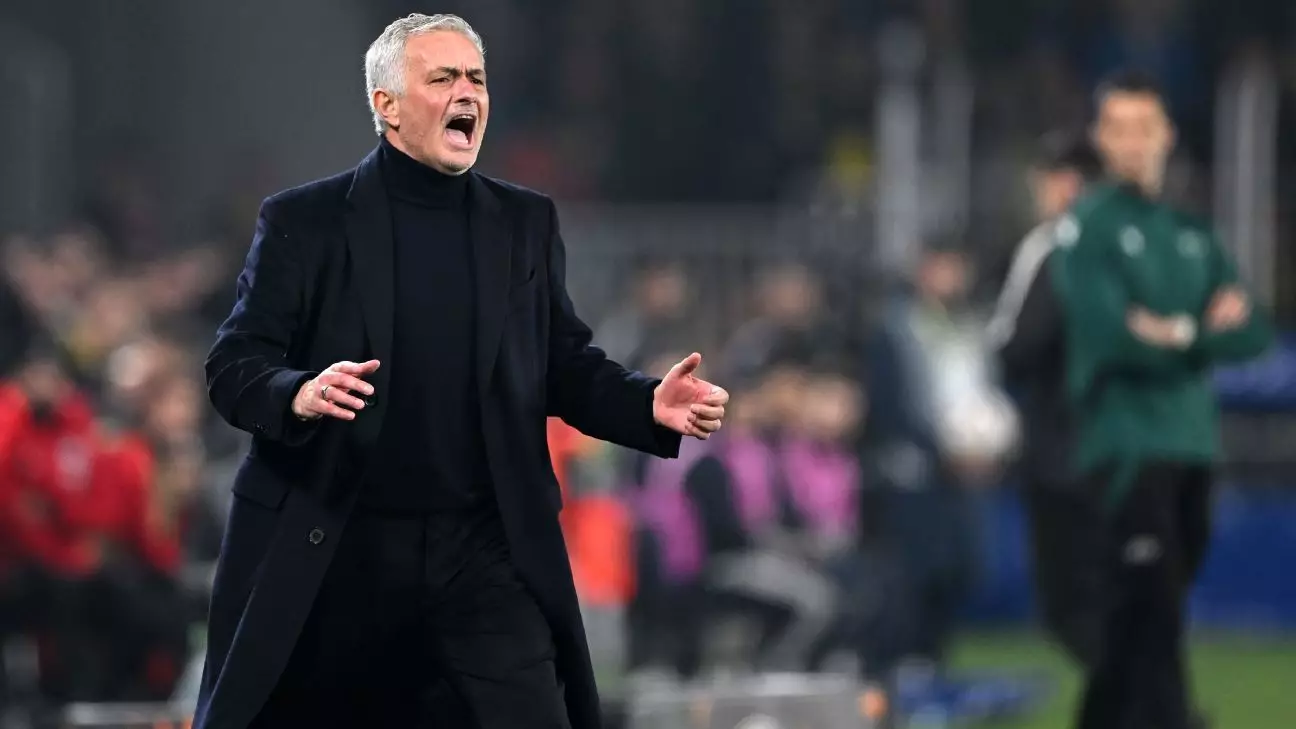The ongoing rivalry between two of Turkey’s elite football clubs, Fenerbahce and Galatasaray, has escalated dramatically with Fenerbahce’s recent decision to pursue legal action against Galatasaray. The move stems from allegations of an “attack on the personal rights” of Fenerbahce’s head coach, José Mourinho, who has been embroiled in controversy following remarks made after a heated Istanbul derby match. In a competitive landscape where emotions run high, the societal implications of sports commentary are once again thrust into the spotlight, calling for a careful examination of the ethics surrounding public statements in such high-stakes environments.
At the heart of this lawsuit are accusations levied by Galatasaray, claiming that Mourinho’s comments—describing their bench as “jumping around like monkeys”—exemplified racism and were “unequivocally inhumane.” Fenerbahce, in stark contrast, argues that those remarks were manipulated and presented wholly out of context, insisting that the essence of Mourinho’s statements has been misconstrued. This situation raises pressing issues regarding accountability and the potential repercussions of incendiary remarks in the sporting arena. In a world that seeks to address systemic racism, it is paramount that language is scrutinized, yet the fine line between political correctness and censorship becomes a challenging jurisdiction to navigate.
Fenerbahce is not just seeking to redress perceived wrongs through public uproar; the club has filed a legal suit demanding approximately $52,000 in damages. Their statement emphasized the historic year of the club’s founding, 1907, by referencing this number as a symbolic rallying cry for their cause. Such a move reflects a blend of seeking justice and upholding club pride, but it also raises questions about whether financial recompense can truly address the societal issues intertwined with the accusations. In many ways, the lawsuit is a reflection of a deeper struggle between maintaining integrity within sports and cultivating a national dialogue about race and respect.
Adding fuel to the fire, the Turkish Football Federation has imposed a four-match ban on Mourinho, accompanied by a hefty fine for derogatory comments aimed at the integrity of Turkish referees post-match. This regulatory response signifies a broader commitment from the governing body to uphold professional ethics within Turkish football, creating a precedent that coaches, players, and teams will be held accountable for their public remarks. However, such decisions must be approached with caution to avoid further inflaming tensions between rival fans and clubs, while also ensuring that the spirit of fair play is preserved.
Having transitioned to Turkey from AS Roma, Mourinho’s illustrious coaching career also adds layers to this complicated narrative. His past experiences with high-profile clubs like Chelsea and Manchester United lend him notoriety, yet they also highlight the potential pitfalls of a brash personality in a nation grappling with its cultural dynamics in the world of sport. The increase in scrutiny surrounding his comments hints at a shifting paradigm where even the most seasoned coaches are not immune from backlash, emphasizing the responsibility that comes with wielding such influence.
The legal confrontation between Fenerbahce and Galatasaray illuminates much more than mere sporting rivalry; it stands as a crucial reflection of how language, heritage, and professional responsibility intertwine, setting a significant precedent for the future direction of Turkish football amidst increasingly complex social dialogues.


Leave a Reply